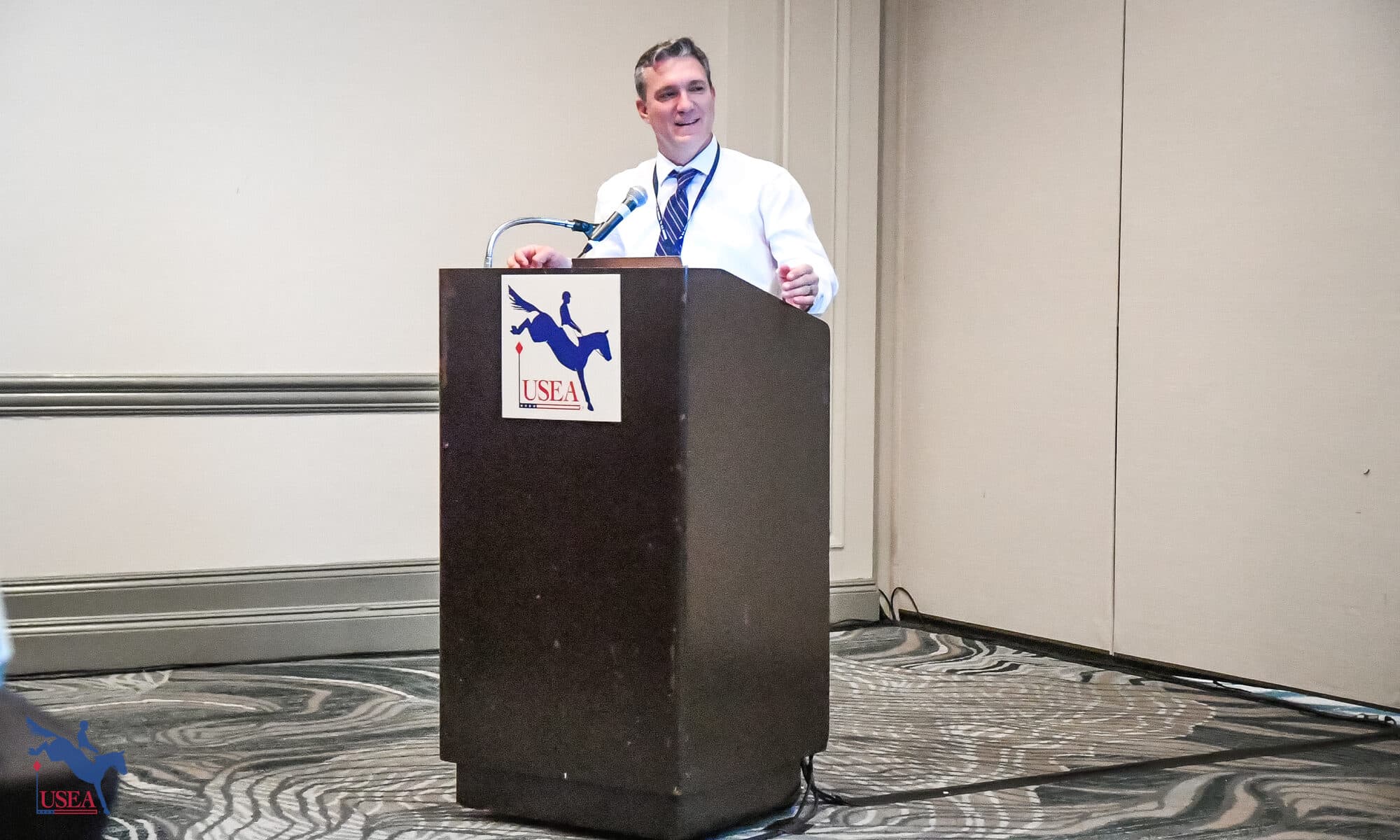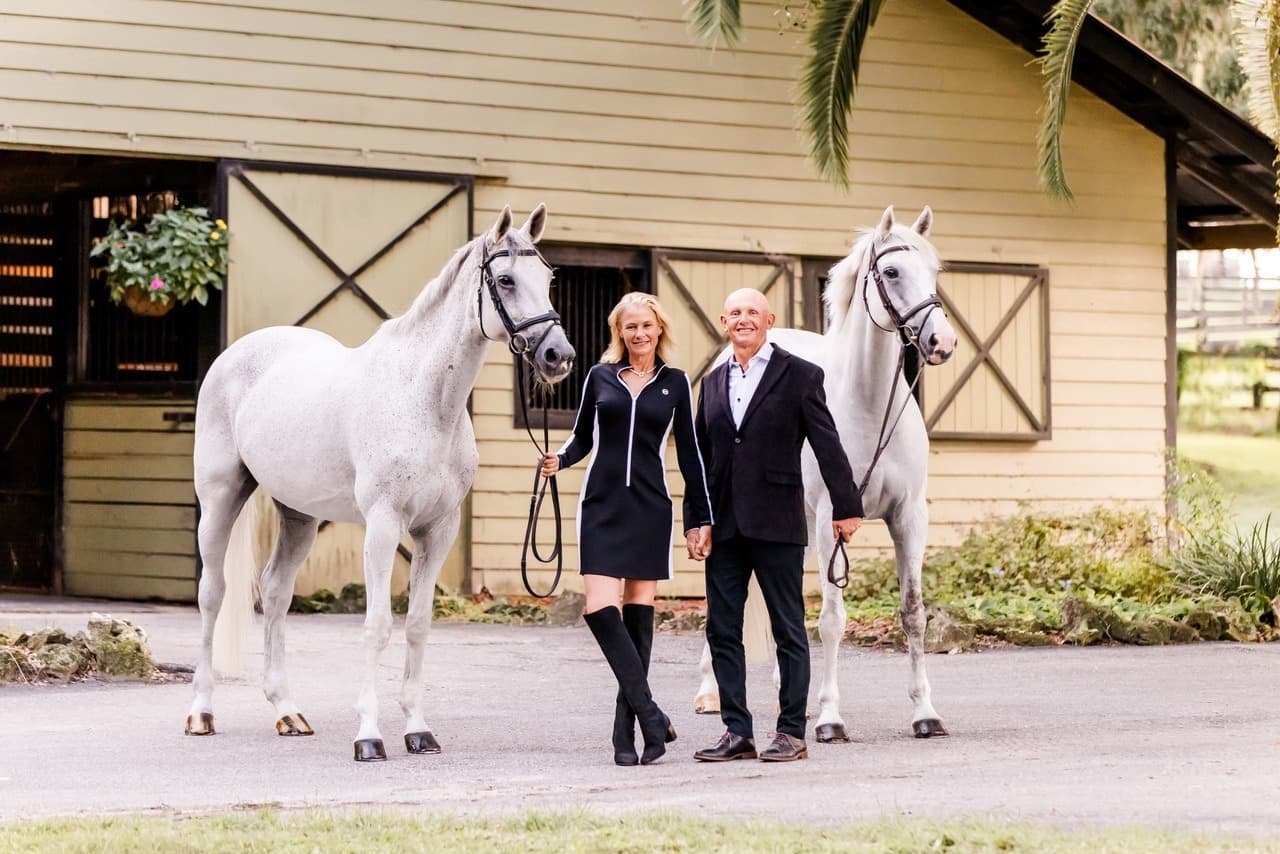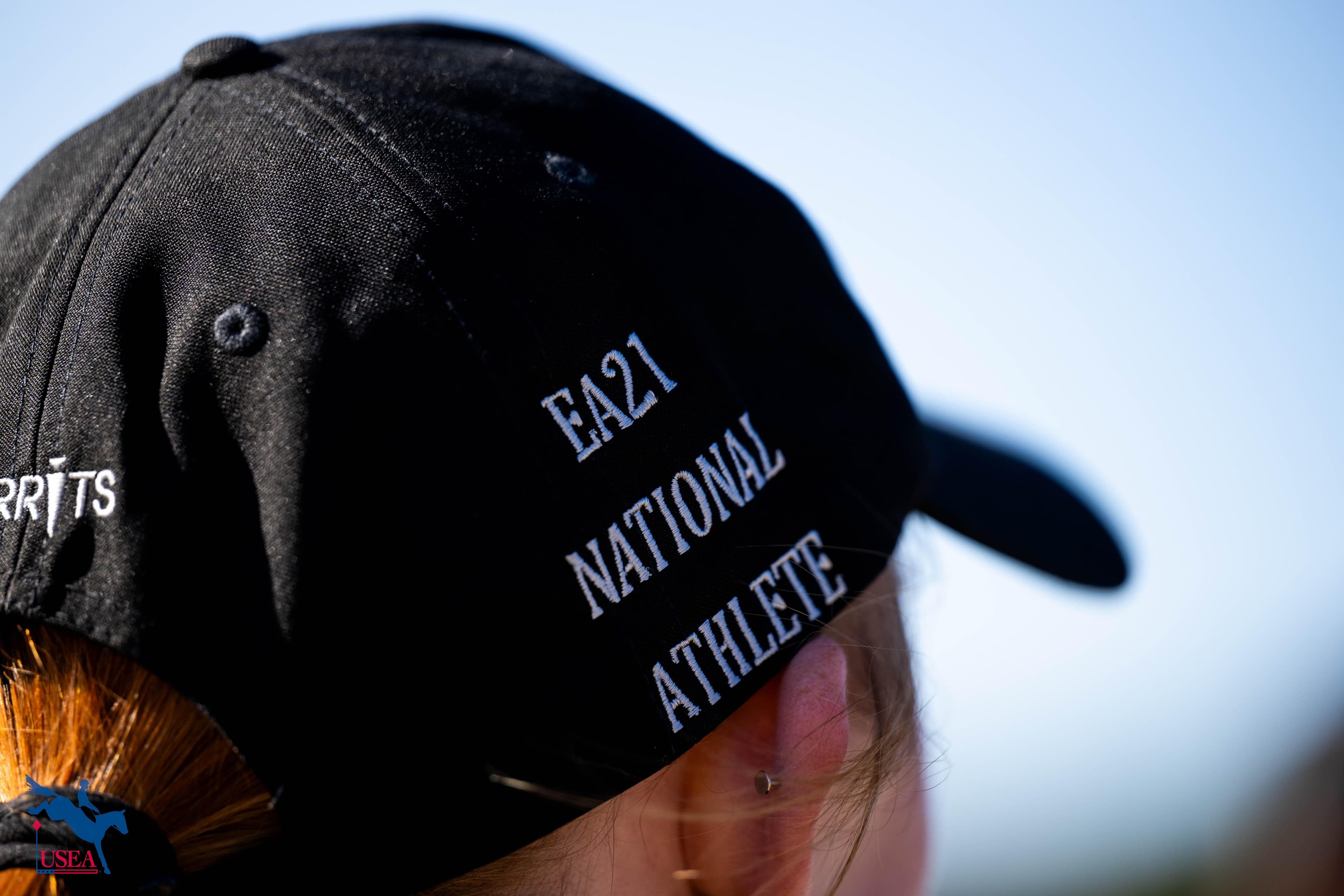6 Tips For Success When Applying For Grants

The USEA Foundation’s mission is to “protect and preserve the sport of eventing for future generations and to provide support for the core educational, safety, and equine welfare programs of the USEA.” The Foundation also administers educational grants for riders with the intent of preparing them to reach their goals.
There are a variety of grants available to USEA members of all ages and experiences and for those who aren’t riders as well. Most grants come through individual donors who have a passion for a specific area of the sport.
USEA CEO Rob Burk led a panel discussion at the USEA Annual Meeting & Convention, held Dec. 7-10 in St. Louis, Missouri, that focused on tips for successfully applying for grants.
“We’ve had an amazing year,” said Burk. “Some of the folks who were early recipients made it onto teams and had really amazing outcomes this year. For us, our focus has been advancing eventing’s future and making dreams come true, but to the same extent, where the Foundation has really grown as a granting body is as an entity that fills in the gaps that might have not previously existed—disaster support, Going Forward grants for officials, Becky Broussard grants without an age designation. The USET Foundation is supporting our teams, and we don’t handle that. For us it’s the development.”
There are nine trustees on the USEA Foundation Board, and each grant has a committee to select applicants.
Most grants are one-page applications, but there several things to keep in mind when filling them out.
Here are some tips from the panel discussion on how to make the most of your grant application.
For a complete list of grants and deadlines, click here.
1. Do your research.
Five-star rider Sharon White, who most recently helped the U.S. team to a silver medal at the Pan American Games (Santiago, Chile) won the inaugural Rebecca Broussard International Developing Rider grant in 2011.
She admitted she knew nothing about Rebecca Broussard or Rebecca Farm when she first heard of the grant.
“These grants are such an opportunity. These are people who have a passion for the sport like we all do and who want to help and have a vision of what they would like to see,” she said. “You need to know that vision. There’s this wonderful thing called the internet and Google where you can find anything out. Talk to people and find out. Why have they given the money? Know before your send in your application. Know the subject so then you can decide if it’s a good fit for you. If it rings true to you in your heart, you know it’s a good thing. It’s kind of like horses—there are horses you get on who might not be right for everybody. Cross your Ts, and dot your Is.”
“Go to the website, read it, follow the directions. If it says you have to be 25, and you’re 34, don’t apply because it shows you don’t follow directions,” said Hilary Miskoe, chair of the USEA Foundation Board of Trustees.
2. Get outside your comfort zone.
“You’re trying to make your hopes and dreams come true in a really hard sport,” said White. “I ride horses for a living. The last thing I feel comfortable with is talking to people I don’t know. It’s not my expertise, but getting this grant 10 years ago—I’m way better than I used to be! It’s really hard to do.”
“Perfect practice makes perfect,” said Beth Lendrum, who’s sat on grant committees and donated money through the USEA Foundation. “Construct what you want to say about yourself. Practice what you want to verbalize. It’s not easy. If you walk in, if it’s an interview, you truly are in the hotseat.”
3. Double-check your application.
“Have somebody else read it before you submit because you can’t get it back,” said Miskoe. “Maybe someone who’s not in the sport. We all know horses, and so do the committees, but they don’t know you. If you can explain you goals to somebody who doesn’t know you, then you’ve told your story well.”
“Make sure it’s on time,” White added. “If you have illegible handwriting, don’t do it. Take the time to type it out. The staff is limited in their time. If they’re having to chase you down for things, you’re immediately to the bottom of the pile. Don’t do silly things that you have complete control over. You can be on time and make sure it’s neat and tidy, and you can make sure you’ve supplied all of the things that you need. Take the time to make sure you’ve done all of that.”
4. Be mindful of your public image.
“In the age of social media, whatever you put out there, stays out there,” said Sharon Anthony, who sits on several grant committees. “Be very conscious of your public image. There have been candidates who have been disqualified in our minds before anything because of how they conduct themselves outside of the spectator arena. Be mindful of the responsibility that’s going to go along with that.”
“Be honest with yourself and be honest with the committee,” said Burk. “If you’re trying to create an image we know doesn’t match what we know you to be in the sport—your actions will come back to the committee in question. Carry yourself well in the community. We’re looking for some involvement. The volunteer hours from you or your students or family, they’ll recognize it. They’ll know. And be good to the people around you.”
If it’s an in-person interview, come dressed professionally and be on time. First impressions count.
5. Follow up.
“How did you utilize the grant? No one should have to ask you,” said White. “There are people on the grant committee who had faith in you and trusted you and gave you money for your dreams to come true. You should let them know exactly what you did with it and how it helped you. Know who’s on your committee and know who to talk to. Whether you were successful or not, it’s about the effort and the communication of, this is what I did, and this is what I learned, and I’m going to be so much better for that.”
If you don’t get a grant, thank the committee for their consideration and ask how you can do better next time. Sometimes it just not might be your year, said Burk. In that case, apply again, or ask if there’s a grant that might be a better fit for you.
“We see gaps in the grant programs, and there might not be one that fits you, and that’s where we want you guys to step forward and say, ‘Hey, keep in mind, this is my story,’ and it might be the story of a lot of other people,” said Burk. “If you don’t see a box that fits you, then talk to us, then maybe we can direct you somewhere else.”
6. Give back.
“People that care enough to give money, they care. They are passionate either about the sport overall or some aspect of the sport,” said Anthony. “These grants are not like an ATM machine. Somebody had a career, has a little money, doesn’t have to be a lot of money, but they care enough to pass it on and to say, ‘I want to make a contribution to help somebody else.’ The payback on that is, use the money well, be conscious of how you spend it, be able to be accountable for it, just like if you got a loan from a bank, and then you in turn turn around and give it back. Keep this going, pay it forward. If you don’t have the money to do it, find another way to do it. Go volunteer.”
Helpful Links
- Convention Webpage
- USEA Coverage
- Schedule
- Registration
- Vendor List
- 2022 Annual Meeting of Members Minutes
Don't forget to follow the USEA’s event coverage on social media!
Facebook | Instagram | Twitter
About the USEA Annual Meeting & Convention
The USEA Annual Meeting & Convention takes place each December and brings together a large group of dedicated USEA members and supporters to discuss, learn, and enjoy being surrounded by other eventing enthusiasts. The USEA organizes multiple seminars in addition to committee meetings, open forums, and tons of fun! The 2023 USEA Annual Meeting & Convention will take place in St. Louis, Missouri, on Dec. 7-10, 2023. Click here to learn more about the USEA Annual Meeting & Convention.
The USEA would like to thank the USEA Annual Meeting & Convention Sponsors: Adequan, Bates Saddles, Capital Square, D.G. Stackhouse & Ellis, Kerrits, Horse & Country, Nunn Finer, Nutrena, Parker Equine Insurance, Rebecca Farm, RevitaVet, SmartPak, Standlee, and World Equestrian Brands.














